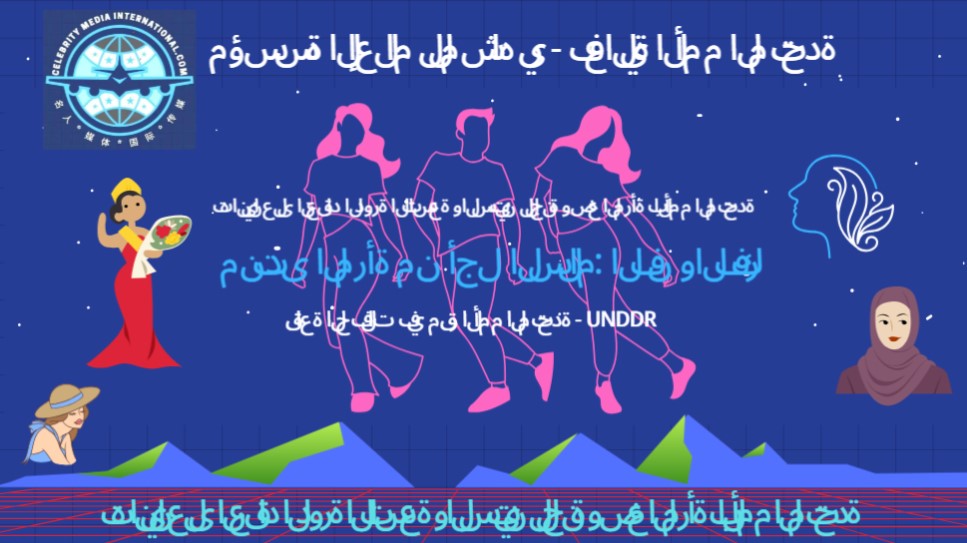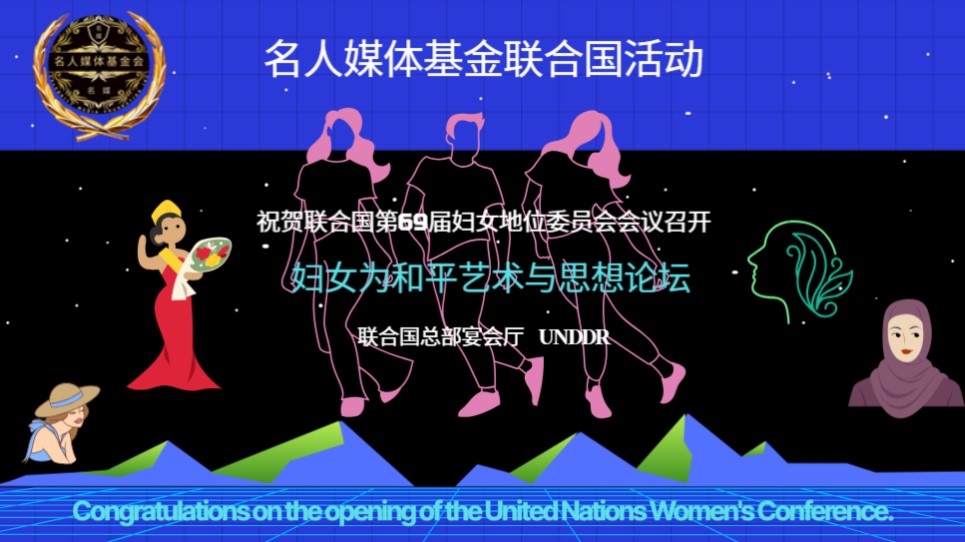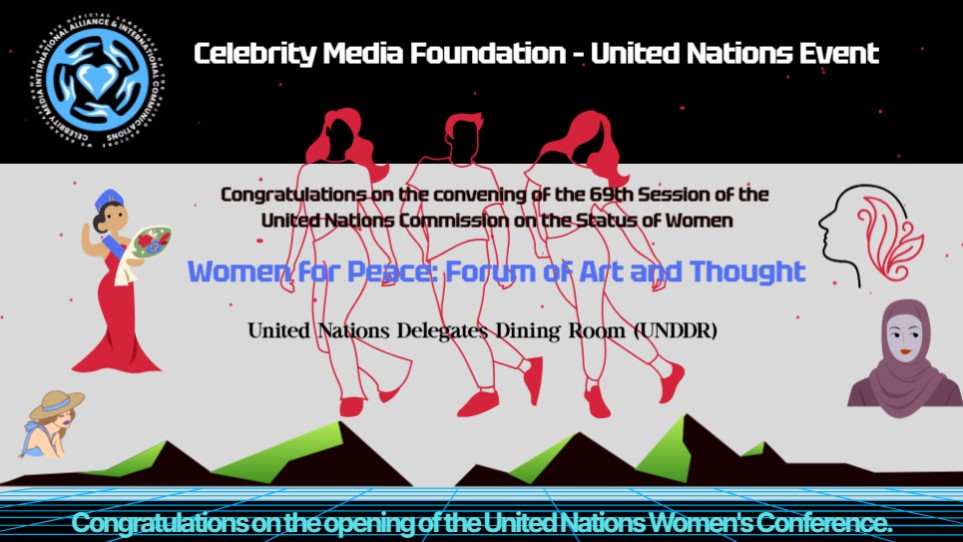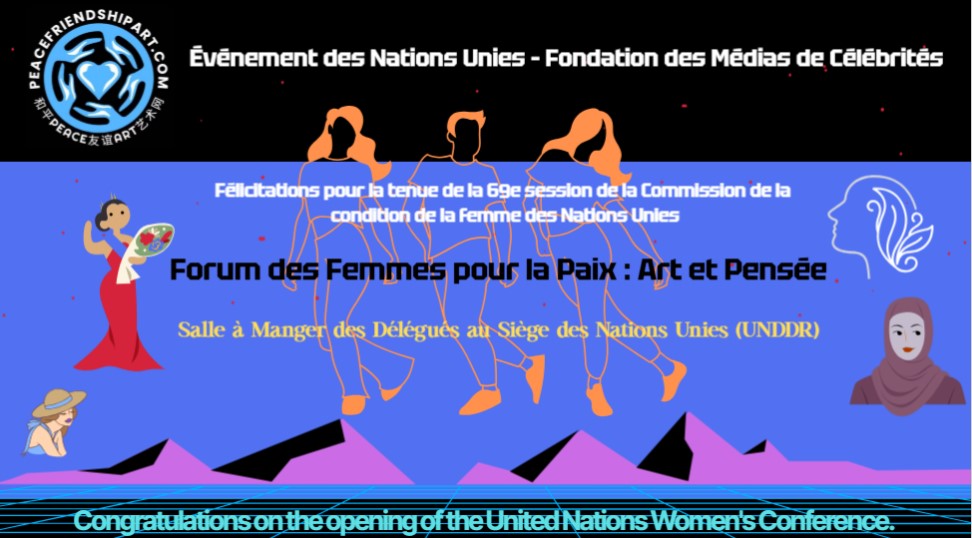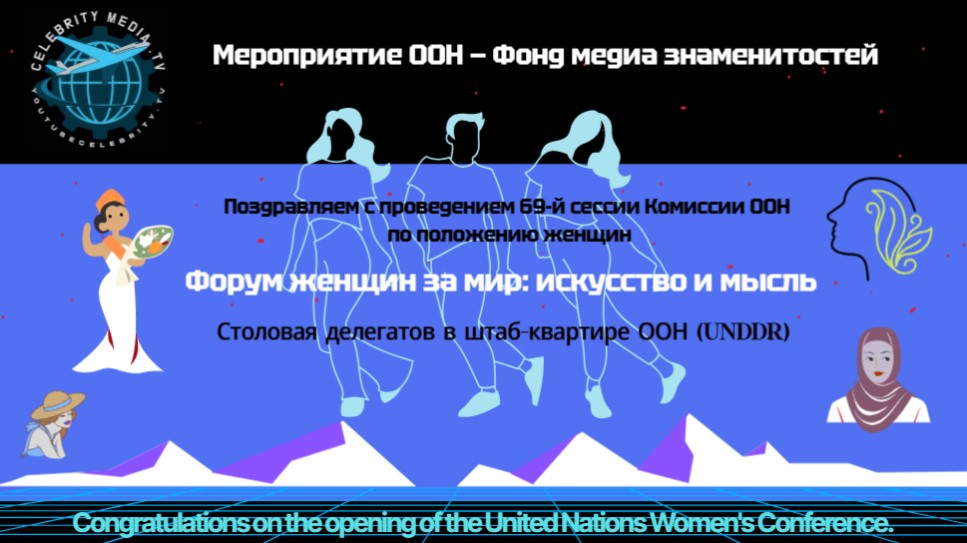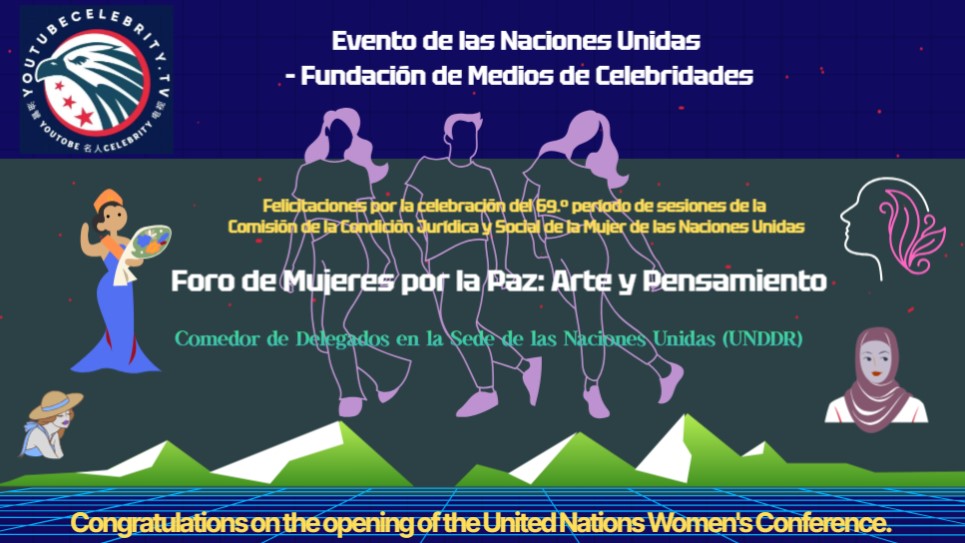The Deputy UN chief briefed reporters today (25 Jan) in New York on her recent trip to Afghanistan.
UN Deputy Secretary-General Amina Mohammed told reporters, “We cannot leave and abandon the women of Afghanistan. It's not when it gets hard that we drop off. It's when it gets hard that they see more of us and that we're there in solidarity with them.”

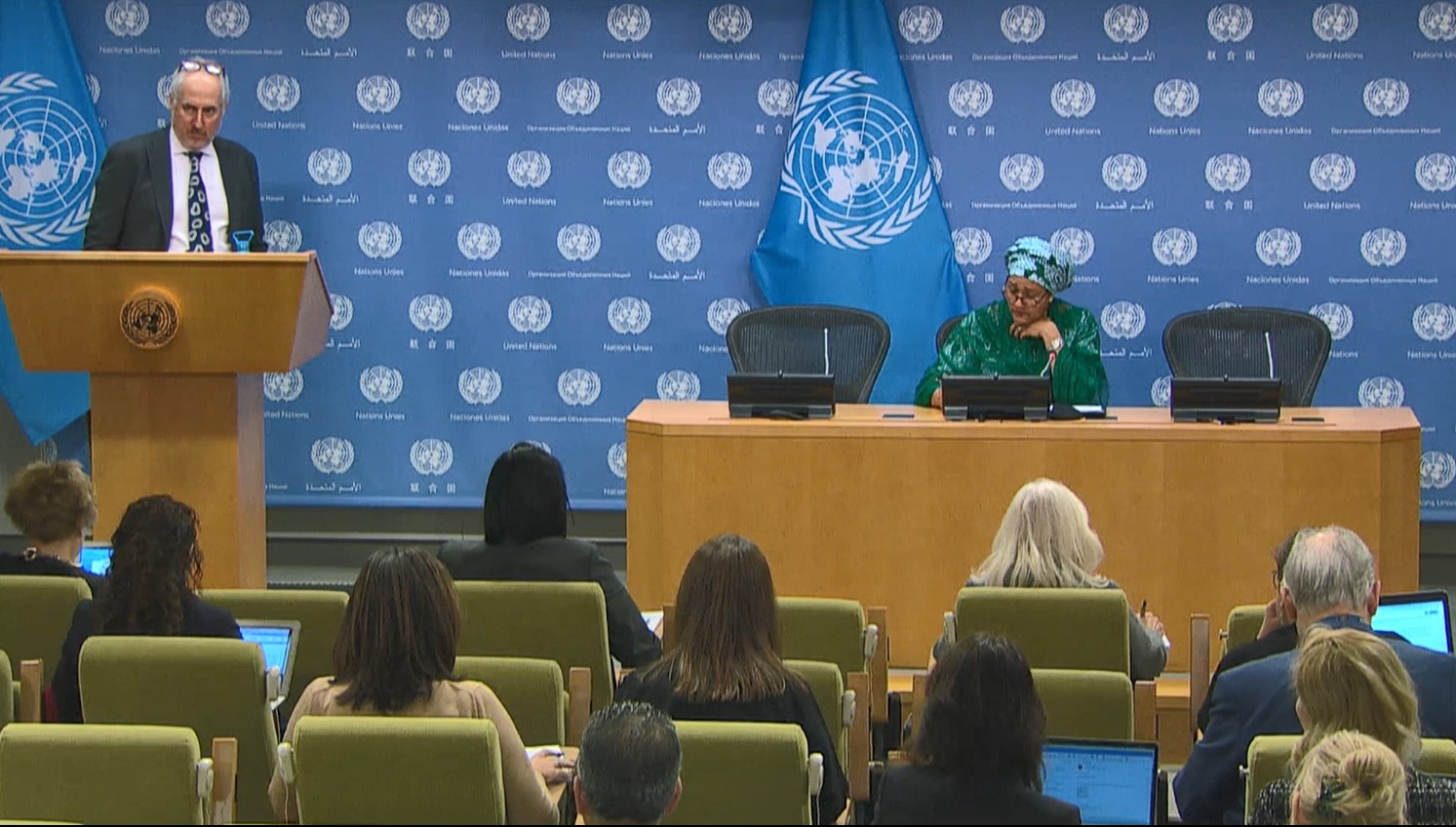
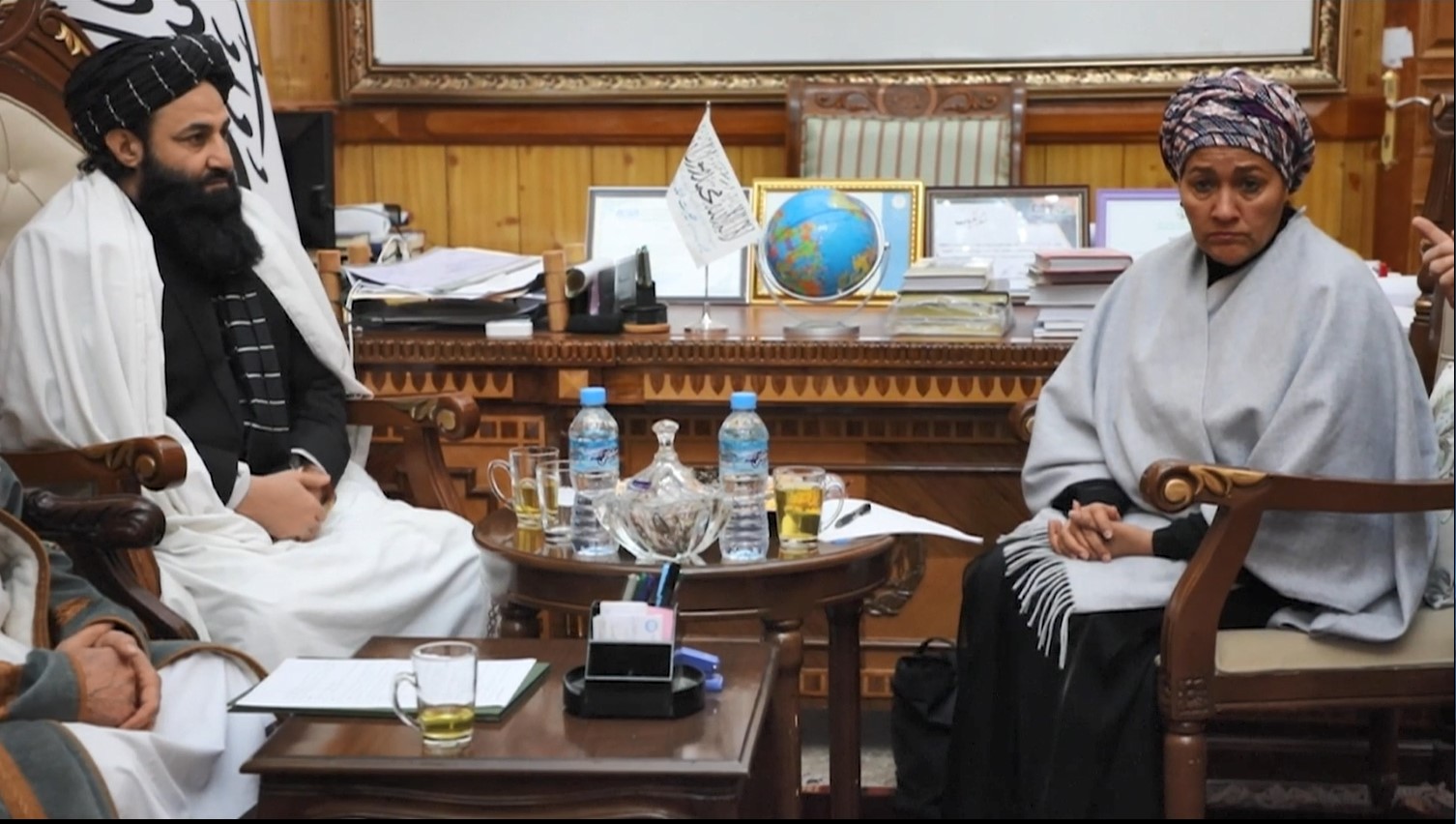
She travelled on behalf of the Secretary-General, joined by the Executive Director of UN Women, Sima Bahous, and the Assistant Secretary-General of the Department of Political, Peacebuilding Affairs and Peace Operations, Khaled Khiari.
During the four-day visit to the country, the Deputy Secretary-General engaged with the de facto authorities and underscored UN solidarity with the Afghan people.
During the meetings with de facto authorities in both Kabul and Kandahar, the delegation directly conveyed the alarm over the recent decree banning women from working for national and international non-governmental organizations, a move that undermines the work of numerous organizations helping millions of vulnerable Afghans.
The de facto authorities have also recently moved to close universities to female students across the country until further notice, and have barred girls from attending secondary school, restricted women and girls’ freedom of movement, excluded women from most areas of the workforce and banned women from using parks, gyms and public bath houses.
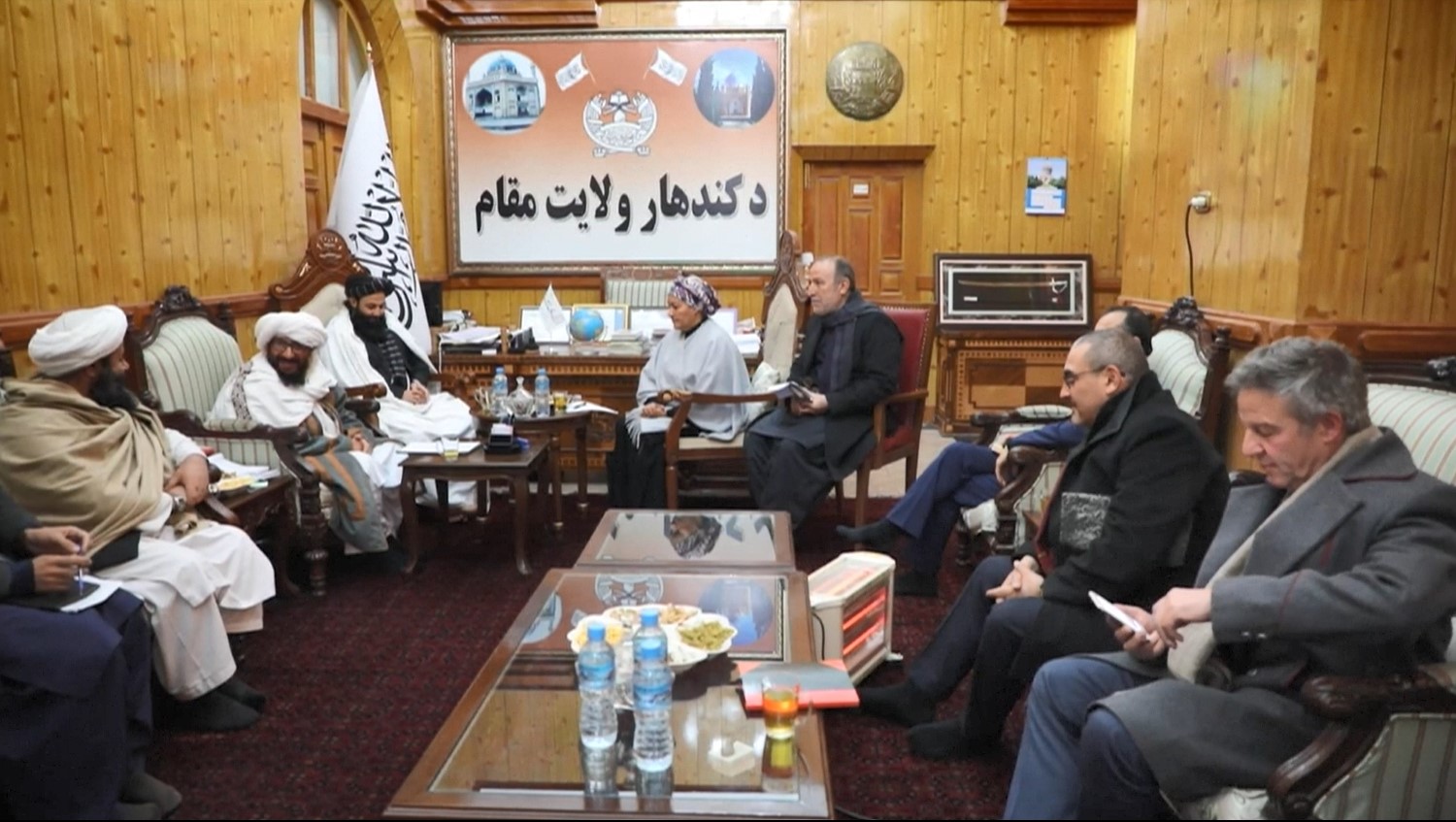
The Deputy Secretary-General said, “I hope this trip has contributed to reinforcing our demands that these bans are reversed, reinforcing the demands of women’s rights and girl’s rights to be respected. Continuing an engagement beyond this trip because this is not a one-fix wonder, and then creating that space for, can the international community come more to the front and more unified.”
In the case of the engagement with the Taliban, Mohammed said, “their messages were off one script – all the things they say they have done and that have not got recognition for.”
She continued, “we reminded them that even in the case where they talked about the rights, edicts that they had promulgated for protecting women, they were giving rights with the one hand and taking away with the other, and that was not acceptable.”
Mohammed also said, “In the case where we spoke to them and they started to talk to us about the humanitarian principles, we reminded them that in humanitarian principles, non-discrimination was a key part of that, and humanitarian and that they were wiping out our women from the workplace. Very specific, the kind of impacts they were having in the medical and in the education field.”
Asked about Taliban’s view on protection of women, the UN deputy chief said, “For them, what they want to do is create an environment that protects women. Their definition of protection would be, I would say, ours of oppression.”
She further explained “What is it that they want to put into those checks and balances to protect women’s lives - there would be structures as to how people would be educated and go to work, the hijab, the curriculum, these for us are all red flags that we need to look at and to see that we are not completely losing all rights for women and children.”
Mohammed also said, “We do have rights in Islam,” adding that she reminded the de facto authorities that “if it is women in business, it is the first wife of the Prophet salallahu alayhi wa sallam (Peace and blessing be upon him) who was the business woman who funded Islam, Khadijah funded Islam. If it was coming to for more knowledge and advice and guidance, it was a younger wife Aisha who gets that, and Fatima and education.”
The Deputy Secretary-General pointed out that Iqra is the first word in the Quran, “it's a religion of light. It's a living religion.”
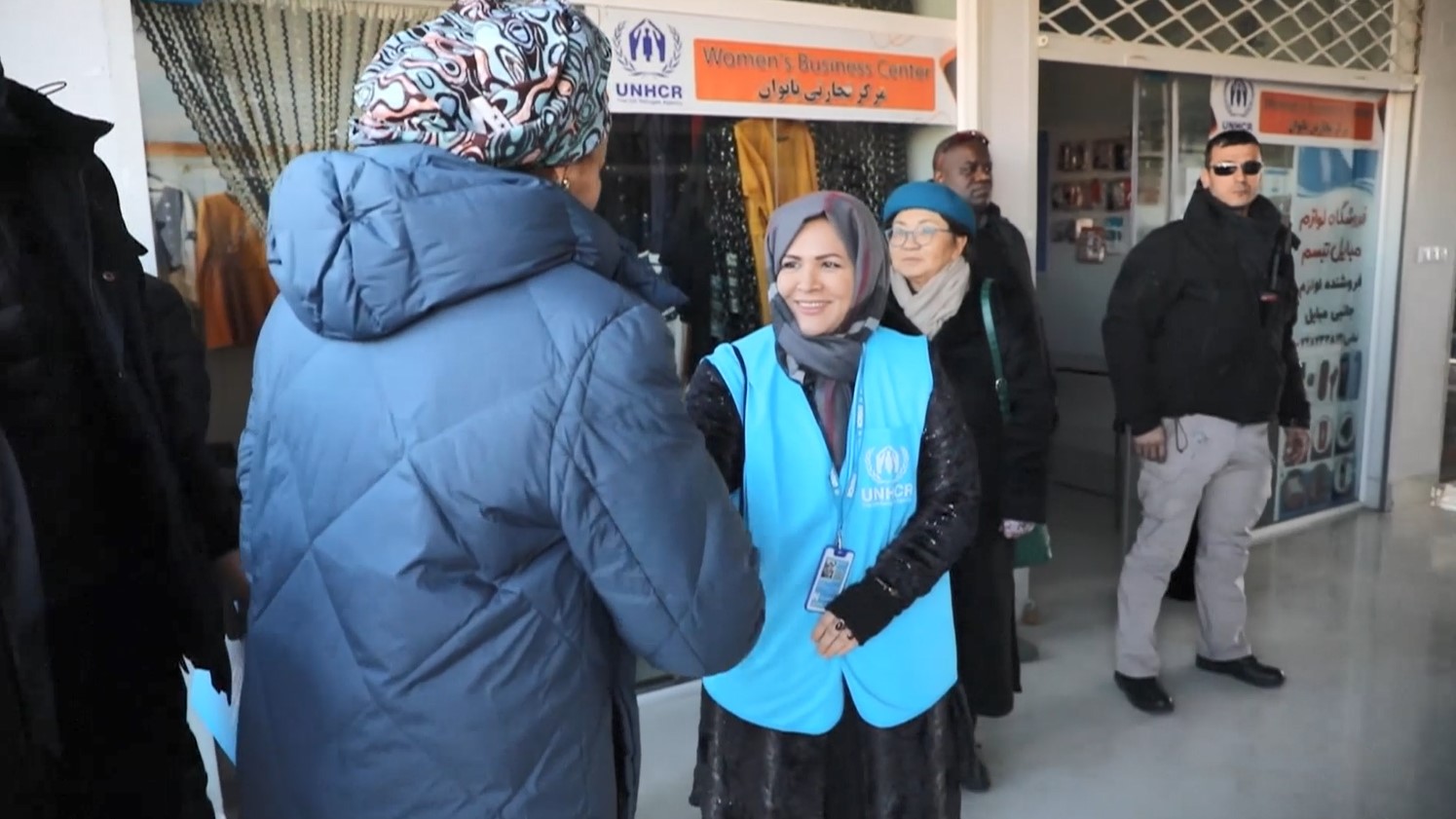


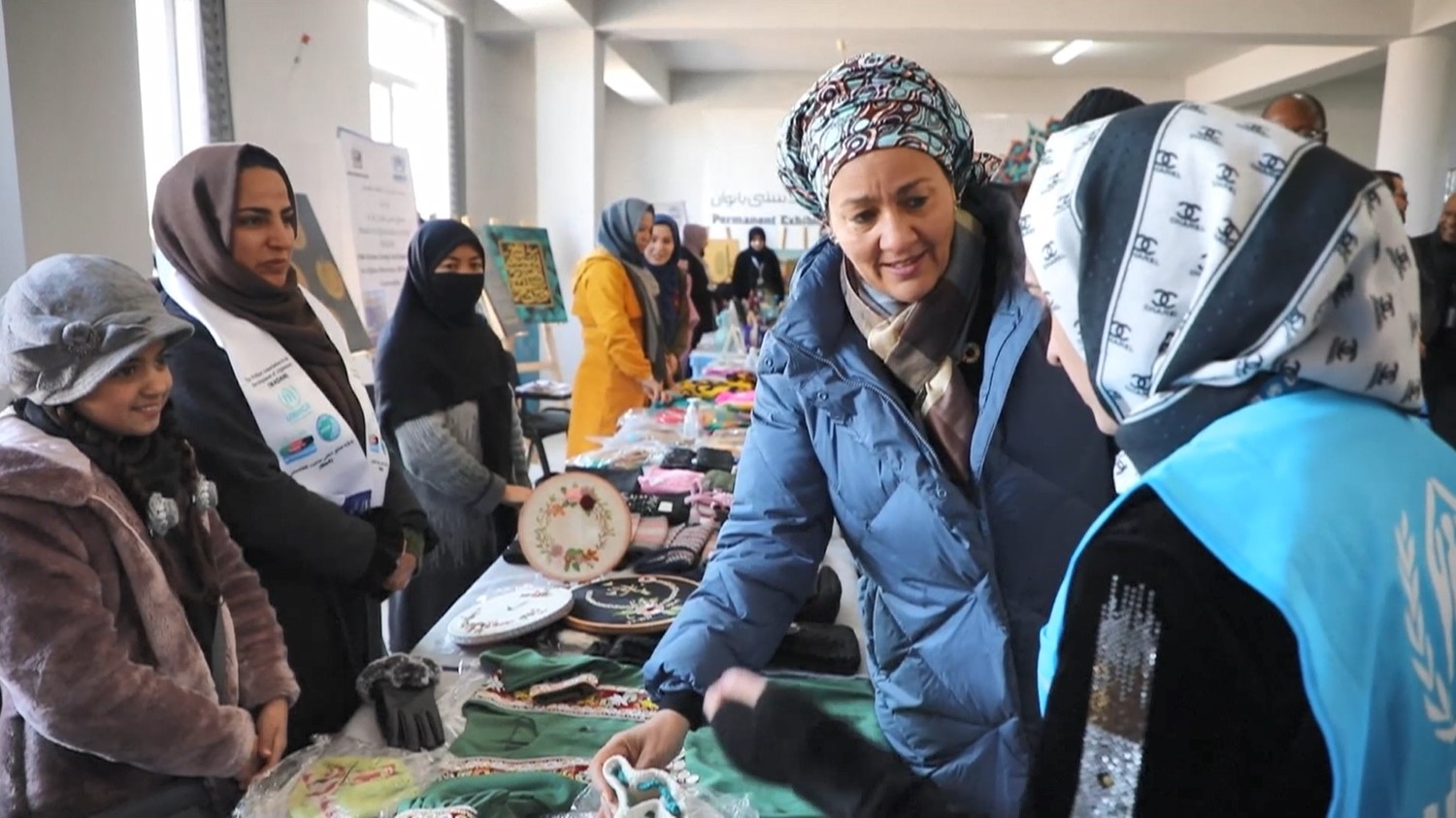
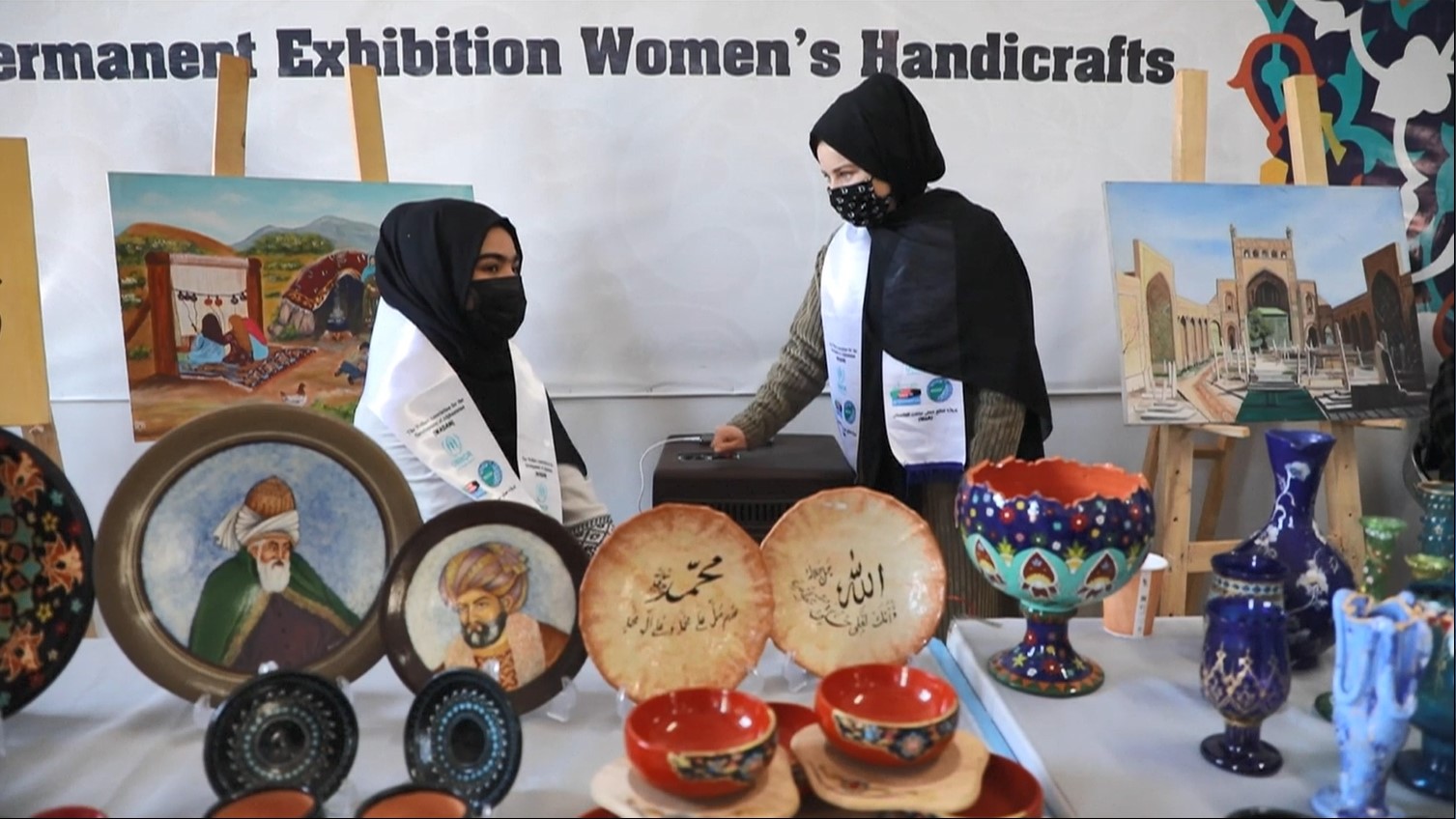
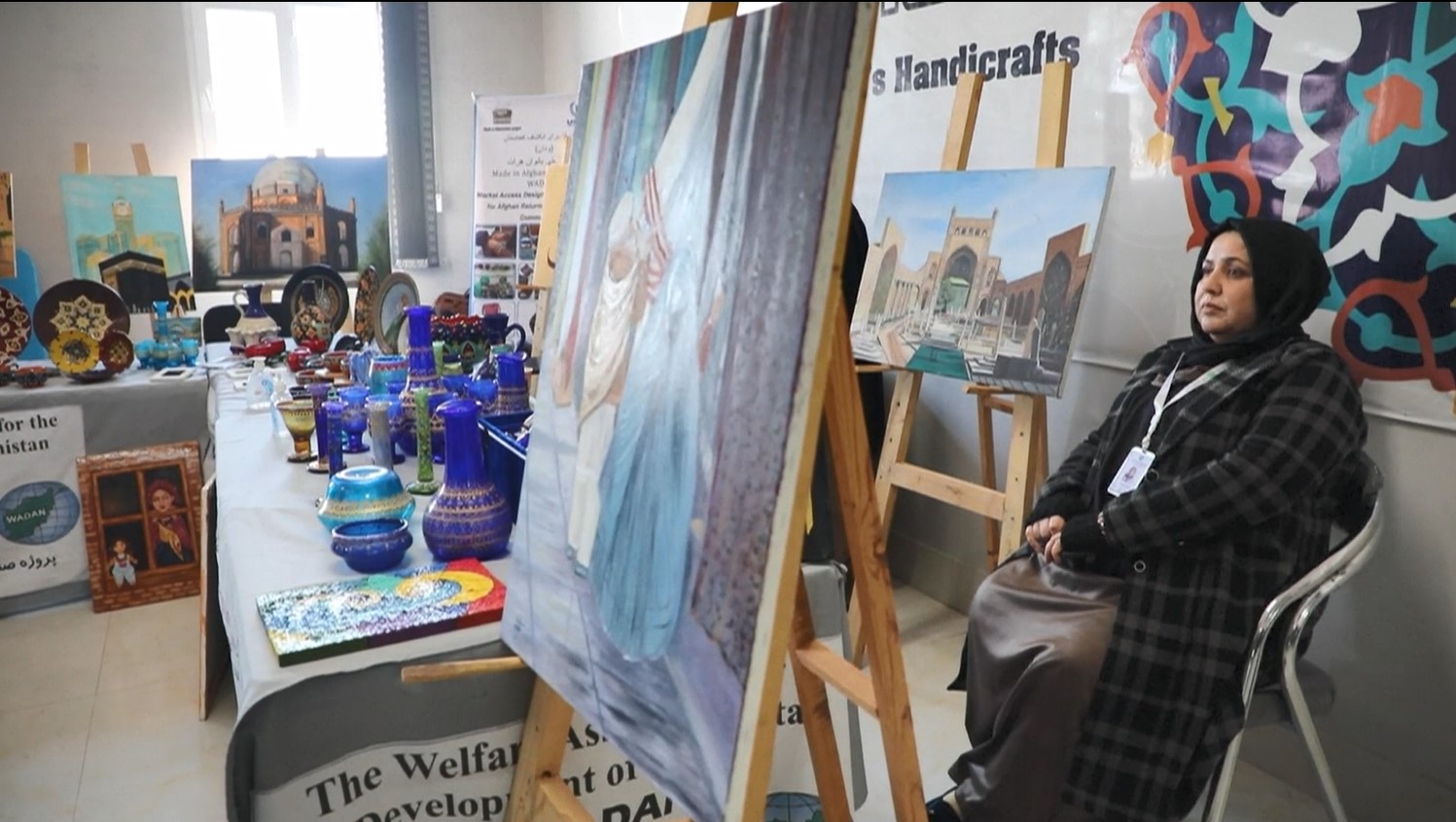
During their mission, Mohammed and Bahous also met with affected communities, humanitarian workers, civil society and other key actors, in Kabul, Kandahar and Herat.
The United Nations and its partners, including national and international non-governmental organizations, are helping more than 25 million Afghans who depend on humanitarian aid to survive, and remain committed to staying and delivering.
The most recent decrees issued by the de facto authorities banning women from working for NGOs has forced many partners to pause operations which can no longer be safely and meaningfully delivered. While the recent exemptions to the ban introduced by the de facto authorities are opening spaces for humanitarians to continue - and in some cases resume - operations, these remain limited to few sectors and activities.
The visit to Afghanistan followed a series of high-level consultations on Afghanistan across the Gulf and Asia. The delegation met with the leadership of the Organization of Islamic Cooperation (OIC), the Islamic Development Bank, groups of Afghan women in Ankara and Islamabad and a group of Ambassadors and Special Envoys to Afghanistan based in Doha.
The delegation convened with government leaders from the region and religious leaders to advocate for the crucial role and full participation of women and rally support for the Afghan people.
